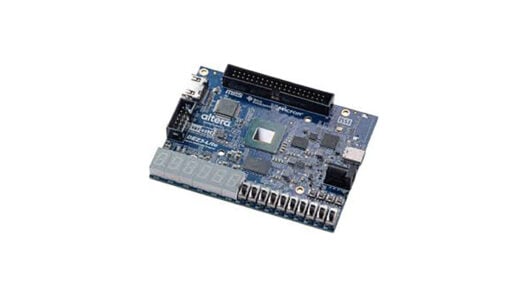Swedish research in the fields of quantum technology and AI is getting a considerable boost thanks to a major investment by the Knut and Alice Wallenberg Foundation in two different research projects.
Lund University is included in both initiatives, coordinated by Chalmers University of Technology and Linköping University respectively, with participation from the Royal Institute of Technology (KTH). The overall aim is to support the development of new technology capable of contributing to Sweden’s long-term development as a research and industry nation.
The quantum technology initiative goes under the name Wallenberg Centre for Quantum Technology. The Foundation has granted SEK 600 million to the centre. The participating institutions, Chalmers, KTH and Lund University’s Faculty of Engineering, contribute further resources together with Swedish companies, giving a total budget of close to SEK 1 billion.
One concrete goal of the initiative is to build a Swedish quantum computer capable of solving problems that current computers are not even close to managing. The project is even broader, however, also aiming to investigate and build up expertise within the four sub-fields of quantum technology: quantum computers, quantum simulators, quantum communication and quantum sensors.
Stefan Kröll, professor of atomic physics at Lund University’s Faculty of Engineering, is coordinating the quantum sensor part: “Human knowledge about the world and our technical progress are limited by what we can measure, and how accurately. Researchers are now in the process of learning how to use individual particles, such as photons and electrons, as sensors in the measurement of forces, gravity and electrical fields”, he says.
This will push the boundaries of our ability to measure things far beyond what was previously possible. For example, researchers have demonstrated measurement technology able to measure forces as weak as the gravitational pull between two people on opposite sides of the American continent.
According to Stefan Kröll, the development of quantum sensors will lead to more powerful instruments for measuring electrical and magnetic fields, among other things. “One can imagine gravitational measurements capable of measuring local variations in gravity to locate mineral deposits or provide early warning of earthquakes and volcanic eruptions.”
The AI initiative is about reinforcing knowledge within machine learning, deep learning and mathematics. The investment is made within the framework of the existing research programme WASP, Wallenberg Autonomous Systems and Software Program, which was launched in 2015 and has now received a boost of SEK 1 billion.
The participating universities, Linköping University, Chalmers University of Technology, the Royal Institute of Technology and Lund University, contribute considerable resources together with Swedish companies. Once fully implemented, the investment is expected to amount to around SEK 1.5 billion.
“With this reinforced WASP investment, we will hopefully have an opportunity here in Lund to deepen our research into robotics, teaching computers and robots natural language and machine learning for image and video classification”, says Karl-Erik Årzén who is professor of automatic control and the coordinator of the Lund part of WASP.
According to Karl-Erik Årzén, there is currently a great deal of interest from industry in machine learning and artificial intelligence. WASP’s extended investment into these areas makes it possible to further reinforce its research and industrial contacts in the field.
Currently, WASP is funding just over 20 doctoral students, one professorship (appointment in progress) and a senior lecturership at LTH. “These researchers are mainly focused on computer vision, cloud technology, software development, distributed systems, large-scale optimisation and control, V2X communication and adaptive software systems.”
Students will also notice the investment, says the dean of the Faculty of Engineering, Viktor Öwall, who also sits on the WASP board: “We will work to include the research in our study programmes in a positive way, in order to reap the long-term benefits. Swedish industry needs a supply of people with expertise in these issues.”







